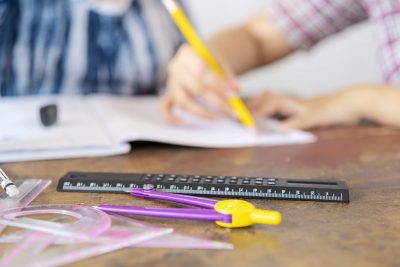UConn Today (Research on optional testing led by Morgaen Donaldson and Eric Loken is mentioned)
Comprehensive Research Review Confirms the Substantial Benefits of Summer Math Programs

Editor’s Note: Kathleen Lynch, an assistant professor of learning sciences, led a research project on summer math learning that was featured by the American Educational Research Association.
Findings Point to the Value of Summer Programs as a Tool for Counteracting the Detrimental Effects of COVID-19 on Learning
The first comprehensive review of research on summer math programs in over 15 years suggests they may help mitigate the learning losses disproportionately experienced by low-income pre-K–12 students during the pandemic. The meta-analysis was published this week in Review of Educational Research, a peer-reviewed journal of the American Educational Research Association.
The findings come as educators, policymakers, and families nationwide work to address the growth in educational inequity brought on by COVID-19.
“Our research provides updated evidence that summer programs are an opportunity to improve children’s math performance, including in high-poverty settings where many students face significant opportunity gaps,” said study co-author Kathleen Lynch, an assistant professor of learning sciences at the University of Connecticut’s Neag School of Education. “This is especially relevant as we grapple with more than two years of the pandemic.”
Lynch conducted the study with Lily An and Zid Mancenido, both of the Harvard Graduate School of Education. They performed a meta-analysis of 37 experimental and quasi-experimental studies published in the past 20 years of summer math programs for children in grades pre-K through 12. Among the programs examined were those provided in person at schools, colleges, and other organizations, as well as online offerings.
“Our research provides evidence that summer programs are an opportunity to improve children’s math performance, including in high-poverty settings where many students face significant opportunity gaps.”
— Assistant Professor Kathleen Lynch
The researchers found that children who participated in summer programs that included a focus on mathematics tended to score higher on standardized math tests and had higher math class grades than students who did not participate in such programs. In studies that reported on noncognitive outcomes, students who participated in summer programs also tended to perform better on noncognitive measures, such as school attendance. A typical student who participated in a summer program could be expected to rank approximately 4 percentage points higher on standardized math achievement tests.
“Summer learning programs, including those targeted toward low-income children, have the potential to aid students academically, and the evidence suggests they can also provide supports for noncognitive skills useful for learning,” Lynch said. “Given the continuing effects of the COVID pandemic, designing summer programs to support both academic and social-emotional development is especially important.”
Under the American Rescue Plan, passed by Congress and signed into law in early 2021, summer programs are identified as a policy tool for addressing COVID-19 learning disruptions. However, a report from the Center on Reinventing Public Education finds that most large school districts have not expanded or improved their 2022 summer programming.
“It’s clear that summer math programs provide a meaningful boost to students and have the potential to advance longer-term STEM educational opportunities.”
— Assistant Professor Kathleen Lynch
“Our results show that schools, district leaders, and community groups should consider increasing their investments in summer programs as an evidence-based strategy to aid in pandemic-related educational recovery, particularly for children whose learning has been placed most at risk,” said Lynch. “It’s clear that summer math programs provide a meaningful boost to students and have the potential to advance longer-term STEM educational opportunities.”
Lynch cautioned that while an increasing number of school districts are turning to online programs as a low-cost strategy, the amount of research on their effectiveness is small as few studies have examined these programs, and they lack many of the benefits of in-person programs, such as in-person social interactions, physical fitness, meals, and childcare for families. “School districts and other providers will need to proceed carefully when designing their programs,” said Lynch.
Funding note: This research was funded by a grant from the Spencer Foundation.
Research Highlights Positive Impacts of Math-Focused Summer Learning
K12Dive (Research led by Kathleen Lynch and academics from Harvard’s Graduate School of Education is featured)
Anamaria Arteaga Named Holmes Scholar of the Month
Ed Prep Matters | AACTE Blog (Neag School doctoral student and Holmes Scholar Anamaria Arteaga is featured)
Mansfield Middle School Principal Named To Administrative Post
Patch (Neag School alumna Candace Morell was named Mansfield Public Schools’ director of teaching and learning)
Best of Luck, Dr. K!
The Independent Day School (Neag School former administrator and alumna Marijke Kehrhahn is featured)
Multidisciplinary Team Wins $3M for Graduate Program
UConn Today (Ido Davidesco is part of a new multidisciplinary NSF grant)
Are School Choice Programs Compatible With the Goal of Racial Integration?
The Journal of Blacks in Higher Education (A research brief by Casey Cobb is featured)
Carson v. Makin Puts Religion and Charter Schools on the Table in Connecticut
CT Examiner (Preston Green is quoted about a recent SCOTUS decision and its impact on charter schools)
After High Court Ruling, is it Tremors or Earthquakes for Public Education?
The Christen Science Monitor (Preston Green is quoted about charter school funding)
